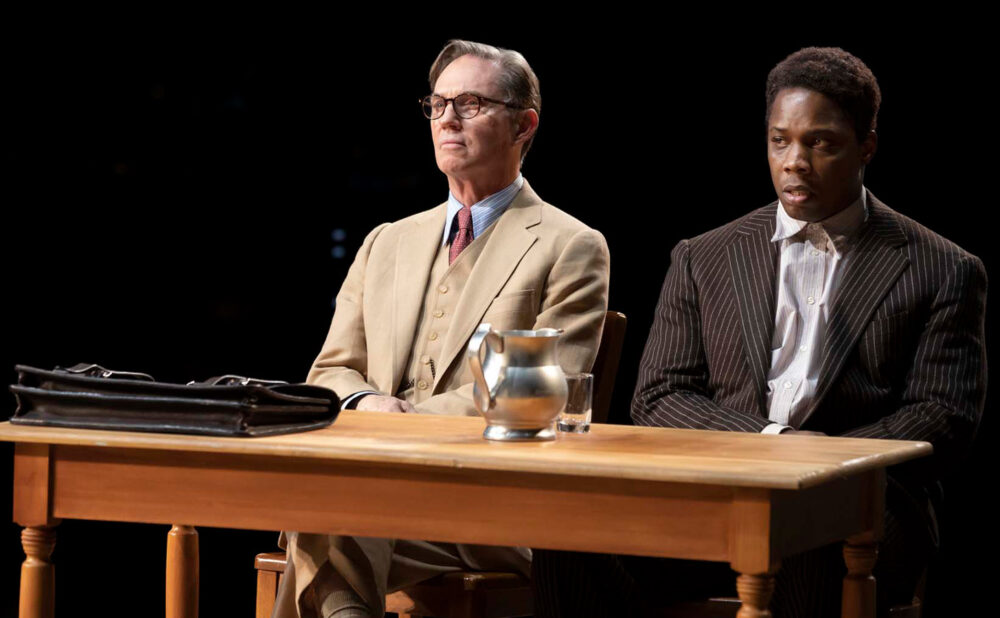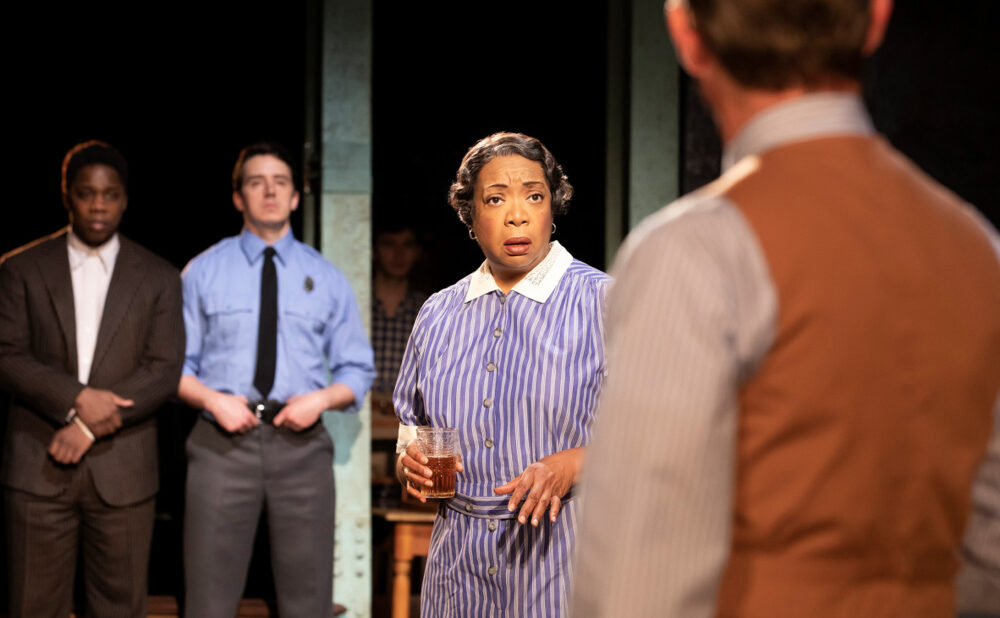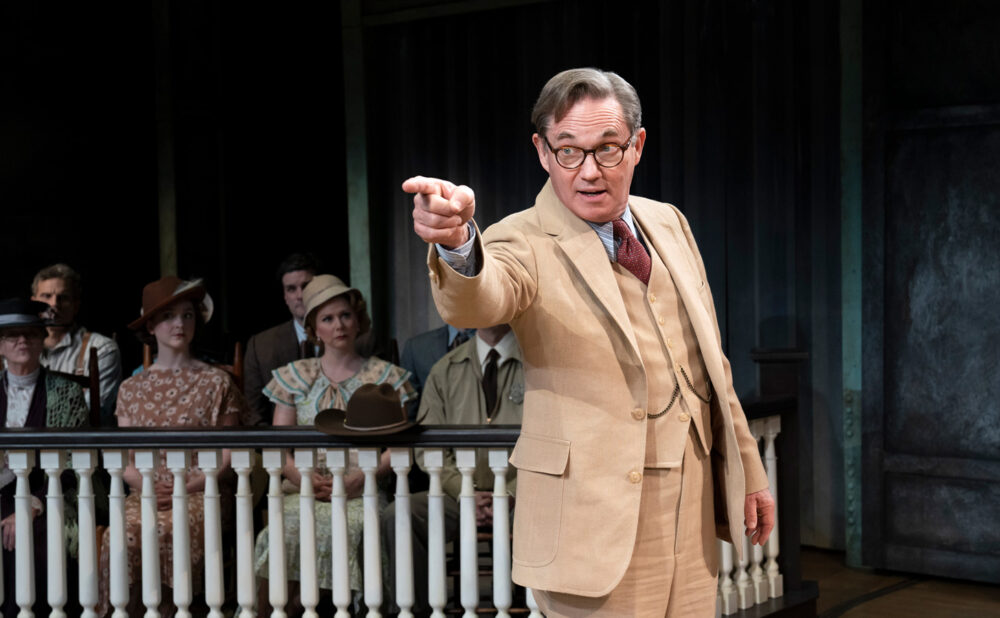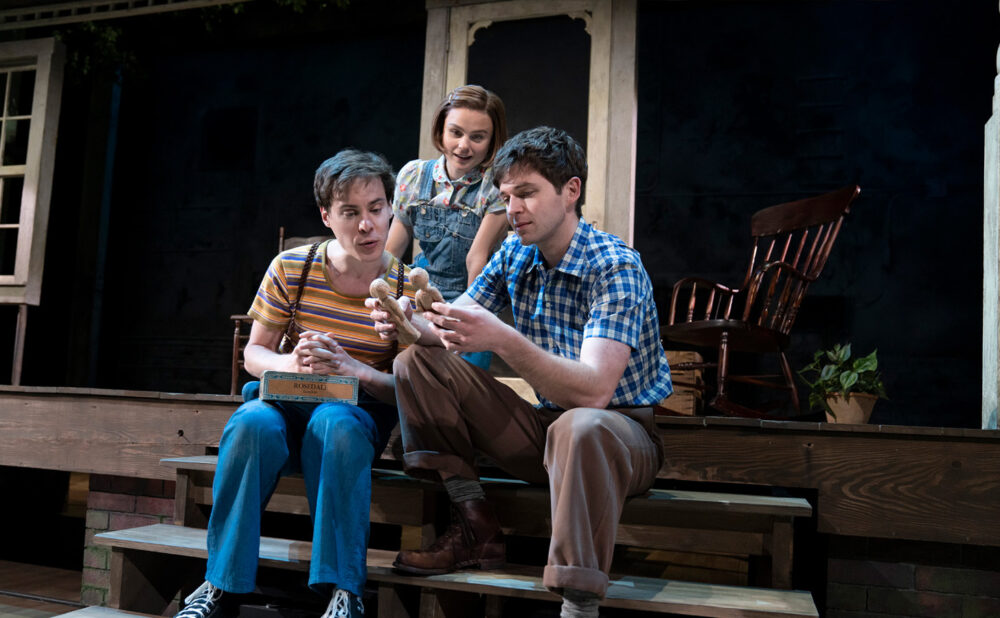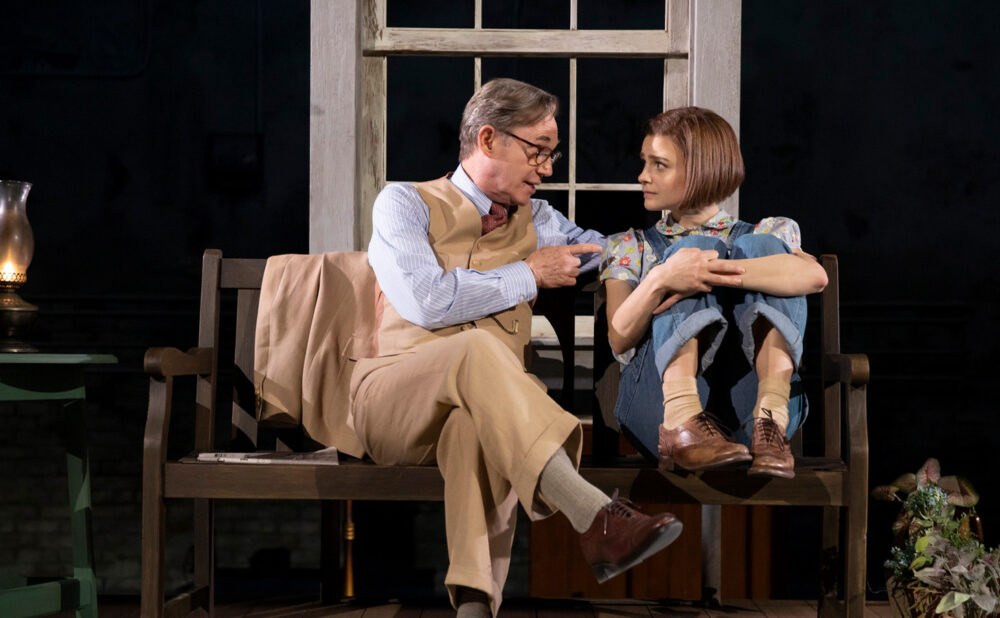Review: The grand scale of Mirvish’s ‘To Kill a Mockingbird’ is entrancing
Hit Aaron Sorkin adaptation makes brief Toronto stop ahead of spring return
What: To Kill a Mockingbird
Where: CAA Ed Mirvish Theatre, 244 Victoria St.
When: Now, until Mon., Nov. 27, but returns from Tue., May 28 to Sun., June 2
Highlight: Yaegel T. Welch’s performance as Tom Robinson
Rating: NNN (out of 5)
Why you should go: From the moment Mockingbird’s curtain rises to reveal Miriam Buether’s towering set, the well-oiled machinations of Bartlett Sher’s slick touring production entrance. Though the show offers few surprises, its grand scale always intrigues.
THE MOST INTERESTING THING about Mirvish’s To Kill a Mockingbird, in Toronto for a sold-out week before it returns next spring, is its size.
I can’t remember the last time a serious drama occupied the mammoth CAA Ed Mirvish Theatre — though there have been plays, they’ve tended to be comedies (or Harry Potter-related). But from the moment Mockingbird’s curtain rises to reveal Miriam Buether’s towering set, the well-oiled machinations of Bartlett Sher’s slick touring production entrance. Though the show offers few surprises, its grand scale always intrigues.
Aaron Sorkin’s adaptation of Harper Lee’s classic Great Depression novel orbits around lawyer Atticus Finch (Richard Thomas)’s trial defence of Tom Robinson (Yaegel T. Welch), a Black man who’s been wrongfully accused of assaulting Mayella Ewell (Mariah Lee), a young white woman with an abusive father. Sorkin interweaves court scenes with related events, past and present, going on in the racist Alabama town.
The novel’s young protagonist, Atticus’s daughter Scout (Melanie Moore), is not very involved in the trial. Her importance derives from her detached observation of the case, which Lee has her share via first-person narration. To preserve this lens of innocence, Sorkin makes her the narrator of the play, too. She, her older brother, Jem (Justin Mark), and their neighbour, Dill (Steven Lee Johnson), pause scenes to offer commentary and context to the audience.
Though the show is rather realistic, Sher uses these child narrators to summon playful theatricality. As the adults converse, the kids are often seen creeping around the back of the stage, eavesdropping, waiting for their chance to interject. I’m not sure this device makes Scout feel as central as a climactic monologue implies she’s meant to — this Mockingbird ends up more a portrait of a town than a family — but it adds dynamism nonetheless.
The rest of the production plays host to a definite cloudiness, though some sun pokes through.
The performances, for instance, are polished and believable but a little mechanical. Mockingbird’s rhythm is too breezy and calculated for much spontaneity, especially in more casual scenes. That said, Welch provides a powerful burst of energy when Robinson goes up to testify — and Thomas brings plenty of life to Atticus’s closing statement, largely succeeding at keeping the monologue from being swallowed up by its iconic status.
You get what you pay for with Mockingbird, I think — no one who hates the book is going to walk away from the play in love and vice versa. Perhaps that’s what’s unique about these big-budget dramas Toronto so rarely sees: they provide exactly what’s expected of them.

